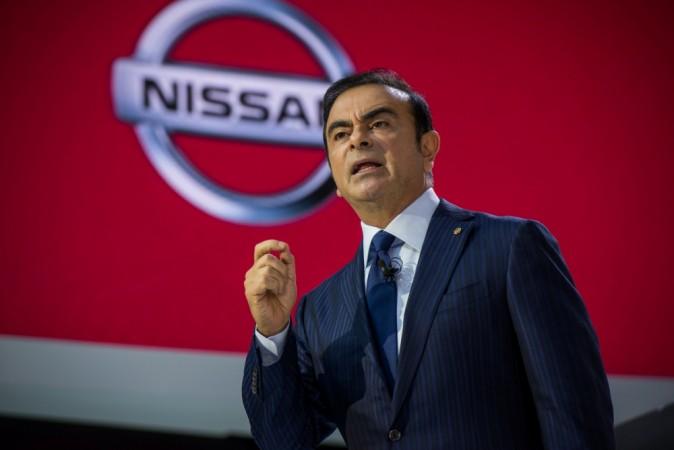
Former Nissan boss Carlos Ghosn will be spending Christmas and the beginning of 2019 behind bars after a Tokyo court on Sunday extended his detention through to January 1.
The court's decision is the latest twist in a rollercoaster saga that has gripped Japan and the business world since the auto sector titan was arrested out of the blue in Tokyo on November 19. "Today, a decision was made to detain (Ghosn). The full term of the detention will expire on January 1," the Tokyo District Court said in a statement to media.
This does not however mean that Ghosn can expect to taste freedom on New Year's Day, as prosecutors can apply for a further 10-day extension as they quiz him on allegations of financial misconduct. Authorities are pursuing three separate lines of enquiry against the 64-year-old Franco-Lebanese-Brazilian executive.
They suspect he conspired with his right-hand man, US executive Greg Kelly, to hide away around half of his income (some five billion yen or $44 million) over five fiscal years from 2010. They also allege he under-reported his salary to the tune of four billion yen over the next three fiscal years -- apparently to avoid criticism that his pay was too high.
The third allegation is that he shifted a personal investment loss made at the height of the financial crisis worth more than $16 million to the Japanese automaker with help from a Saudi acquaintance. Prosecutors have pressed formal charges over the first allegation but not yet over the other accusations.
Ghosn reportedly denies all the allegations, saying the transactions were done legally. In connection with the third suspicion, local media say Ghosn is not contesting that payments from Nissan totalling $14.7 million went to the Saudi person, whom he has known for some three decades.
But Ghosn has maintained that the money was for the person's work to help Nissan in the region. Ghosn's case has seen several twists and turns since his stunning arrest on the night of November 19 as his private jet touched down at Tokyo's Haneda Airport.
On Thursday, observers were caught wrong-footed as the court threw out a request from prosecutors to extend his detention over the second set of allegations (under-reporting his salary between 2015 and 2018) in an almost unheard-of move.
This raised his hopes of a release in time for Christmas and he was reportedly gearing up to hold a news conference to put his side of the story for the first time. But those hopes were then dashed on Friday when prosecutors sought and obtained his re-arrest over the new accusations of breach of trust.
"The accused was responsible for managing Nissan's overall operations and for dutifully fulfilling his role as CEO not to cause damage to Nissan and its subsidiaries... but he took action that betrayed his role and caused financial damage to Nissan," prosecutors alleged in a statement on Friday.
Since his arrest, the once jet-setting executive has languished in a tiny cell in a detention centre in northern Tokyo, where he has complained about the cold and the rice-based menu.
Ghosn has told embassy visitors he is being well treated and sources at French car giant Renault have described his frame of mind as "combative" as he fights the charges against him. His lengthy detention -- in Japan, suspects can be "re-arrested" several times over different allegations -- has sparked criticism, especially from abroad.
After his arrest last month, Nissan and Mitsubishi Motors promptly sacked Ghosn as chairman but Renault kept him on and appointed an interim boss as it waited to assess the legal procedures against him.
In addition to charges against Ghosn and Kelly, prosecutors had also indicted Nissan itself, as the company submitted the official documents that allegedly under-reported the income.
Kelly, who was also arrested last month, could be released as early as next week. Ghosn's fall from power at Nissan has exposed a deep rift in the three-way alliance -- which outsold all of its rival groups last year.
The tycoon was once revered for his role in turning around Nissan and forging the fractious alliance, in which Renault remains the dominant shareholder.
Some executives at Nissan -- which now contributes more profits than Renault to the group pot -- were said to bristle at the French company's leadership position.

















